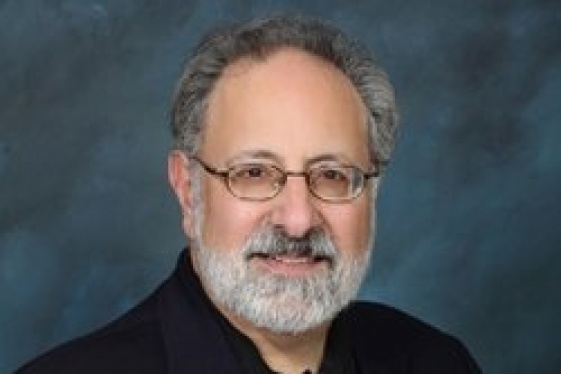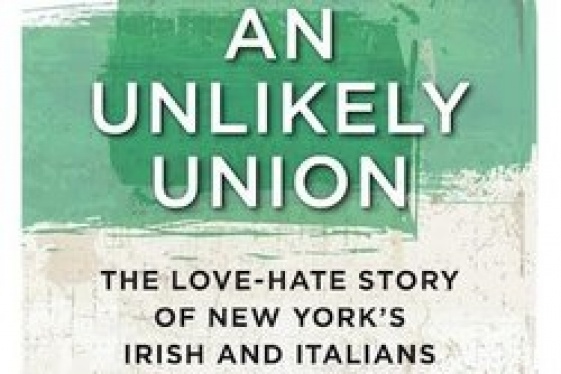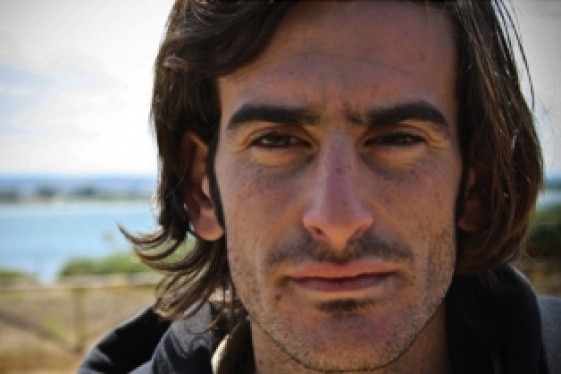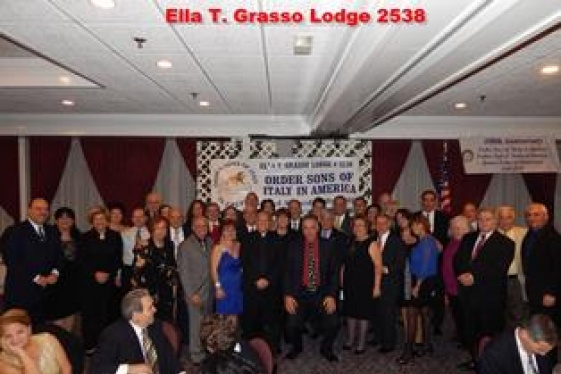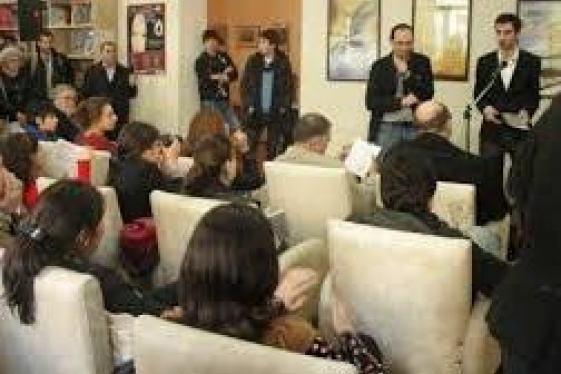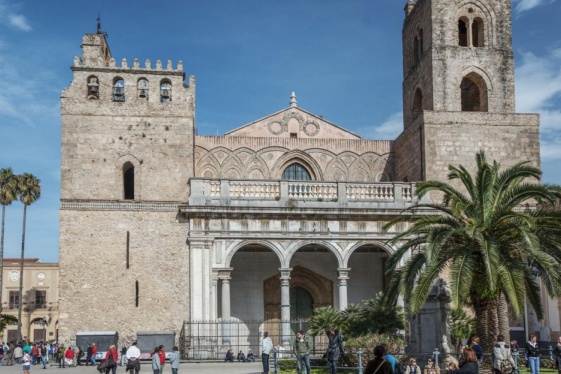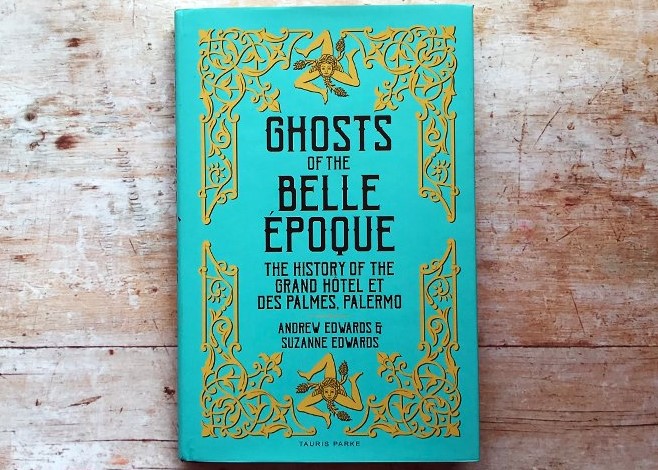

BY: Mark Spano
In Ghosts of the Belle Époque: The History of the Grand Hôtel et des Palmes, Palermo, by Andrew & Suzanne Edwards, the authors have given us a memory story taking place over many times and set in one particular place. The book is jam-packed with events from the turn of the 19th Century through to the present.
It is a remarkable achievement to maintain a thread of unity through so many incidences and colorful personages, the likes of Guy de Maupassant, Richard and Cosima Wagner, Oscar Wilde, Maria Callas, Lucky Luciano, and Marlon Brando to name a few.
What I find especially compelling about this book is how the authors most entertainingly challenge our reality principles. Do we stolid travelers winding our ways through the 21st Century believe in ghosts and/or magic? Are Andrew & Suzanne Edwards asking us to? I believe they are.
In 1889, James George Frazer coined the term "sympathetic magic" in his groundbreaking work, The Golden Bough. There are two subcategories of sympathetic magic: that relying on similarity, and that relying on contact or “contagion.” I believe that the Edwards are asking us to seriously consider the “magical law of contagion,” or the belief that a person's essence can be transmitted through objects they have touched. The law suggests that once two people or objects have been in contact a magical link persists between them.
While reading the Edwards’ chronicle of this long-lived hotel in the center of Palermo, I find that I am asking myself if these lessons in memory are more than mere metaphor. Are these memories of a place and in a place stronger than our French existentialist friends who would tell us such magic is a spurious bit of knowledge as well as a risky guide for human behavior.
On the other hand, our greatest purveyor of “association of ideas” and “connections” between things and beings in memory came to us from another Frenchman, Marcel Proust whose bite of a Madeleine and swallow of camomile tea are tantamount to articles of faith for memory as mysticism.
I contend that even so straightforward a telling of events as the Edwards’ is in some ways dealing in a magic of contagion as humans have experienced for millennia on religious pilgrimages or visits to holy places. It’s a kind of magic. Do I believe in it? Why do I traipse to the cemeteries of Paris searching for the graves of my most beloved artists, Oscar Wilde, Marcel Proust, Piaf, Gertrude Stein, and Stendhal?
Does nostalgia for persons and places fall under British biologist, Rupert Sheldrake’s theory of morphic resonance? This is an idea that pushes us far beyond the notion of metaphor. According to Sheldrake’s theory, a paranormal influence by which a pattern of events or behavior can facilitate subsequent occurrences of similar patterns. He’s not saying it’s magic. He is calling it science.
Another author who has traded heavily in what we commonly call “magic” is Colombian author Gabriel Garcia Marquez. Marquez is considered the father of magical realism, a genre of literature that depicts the real world as having an undercurrent of magic or fantasy. Marquez has told us, “Going to Sicily is better than going to the moon.” Why does he bestow on to Persephone’s Island a lunar enchantment: stark yet all aglow? One need only walk through Villa Palagonia or Palazzo Chiaramonte-Steri or the Grand Hôtel et des Palmes to glean that Sicily is the planetary capital of haunted memory.
Before the mesmerized realms of Marquez, Isabell Allende, Italo Calvino, and Salman Rushdie, there was the sympathetic magic of Europeans like Picasso, Genet, Dali, and Cocteau. Places stir memories, evoke feelings. The Edwards are writing on the very nature of what is resonate in a place. Such compelling writing on the nature of place might conduct us toward beliefs in ghosts and magic. Do the very stones of the Grand Hôtel et des Palmes resonate with the stories and passions of the peoples who passed through its corridors?
Like myself, Andrew & Suzanne Edwards have been taken hostage by a Latin mystique in person, place, and literature. These are localities abundant in what many of us call, “soul.” In their new book, the Edwards have designated themselves as pilots through truly soulful territory. They are equipped to do this by means of inured expository writing and another interesting touch of sorcery. They are a husband and wife engaging in an intimacy as equally challenging as marriage, that is, writing a book together. And most astonishingly, they have done it numerous times.
You may be interested
-
'Phantom Limb': A Conversation With Dennis...
Dennis Palumbo is a thriller writer and psychotherapist in private practice. He's the auth...
-
An Unlikely Union: The love-hate story of Ne...
Award-winning author and Brooklynite Paul Moses is back with a historic yet dazzling sto...
-
Davide Gambino è il miglior "Young Italian F...
Si intitola Pietra Pesante, ed è il miglior giovane documentario italiano, a detta della N...
-
Former Montclair resident turns recipes into...
Former Montclair resident Linda Carman watched her father's dream roll off the presses thi...
-
Italian American Culture Night
Tuesday, April 14 - 6.30 pm EDTSt. James Church Rocky Hill - 767 Elm St, Rocky Hill,...
-
''La Gente di Mulberry Street'' presentato a...
Valsinni- Italia, terra di emigranti. Presentato a Valsinni il nuovo saggio storico di Raf...
-
'A beacon of hope': Sicily’s enduring North A...
On a late summer evening in the Sicilian seaside village of San Vito Lo Capo, Anna Grazian...
-
'An Unlikely Union' author Paul Moses on his...
by Ginger Adam Otis Any journalist who has ever been an author has lived through...



